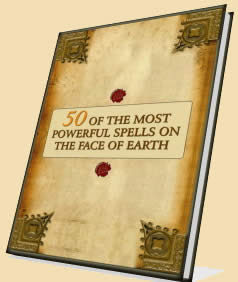
Book: The Occult Art Of Acquiring And Directing Spirit Servants by Ilmu Khodam
One of the most interesting occult arts to be found in Islamic occultism is what the local practitioners here in Indonesia call "Ilmu Khodam" The word ilmu (pron. "eel-moo") literally means "knowledge." In Indonesian shamanism, ilmu particularly refers to a specific occult art -its theory, practice, and the resultant power or ability--emphasis is especially placed on power. Khodam (pron. "kho-dum") or Khadam, an Arabic word as is "ilmu," may be translated as "servant." In al-Hikmah, one of the terms for occult science in Islam, the word khodam refers to an acquired familiar spirit, unlike Qarin, which is a companion spirit one is born with. These khodam familiars, are not animal spirits, or at least, they do not normally appear in animal form, unlike the familiars of wicca and shamanism. Generally speaking, the khodams are said to be specialized spirits of the angelic/jinn class, though some occult practitioners explain that khodams are specifically the angelic servants embodied and guarding the letters of the Arabic alphabet, and even the Asma ul-Husna--the 99 Beautiful Names of Allah. A minority of practitioners believe them to be intermediate spirits between angels and jinns.From the foregoing information, we may define "Ilmu Khodam" to be the occult art of conjuring and acquiring invisible helpers to assist in one's magickal operations. The nature and spiritual level of the khodams that the occult practitioner acquire is dependent upon his/her own spiritual attainment. Not all khodams have the same powers or to the same degree. The master of a khodam would have to inquire the spirit familiar regarding its speciality, nature, class, origin, and other pertinent matters. Khodams are said to be charismatic, have powerful presences, with strong personalities and revealing identities. They are also highly intelligent and communicative. They have a calm nature and their words are filled with wisdom. Khodams normally appear in robes. Several years ago, the writer of this article was initiated into the methods of Ilmu Khodam by one of its modern pioneers here in Indonesia.
Acknowledging that the above specific explanation regarding khodams are correct, in addition, these spirits, according to our initiator, are actually one of the earliest created (emanated?) beings and are a class of their own--they do not belong to either groups of angels and jinns. Their have a benign nature and have sworn to serve only for good purposes so that they might acquire merit and evolve further, perhaps allowing them to attain a higher spiritual status permitting them to approach closer to the Throne. These khodams were "created" to be the guardians and helpers of humanity. They possess wonderful powers, although circumscribed by cosmic law. They are programmed to assist those who would first take the initiative to help themselves, and those who are in dire straits. Perhaps angelic assistance that people are experiencing all over the world are khodamic-activity.It is believed by practitioners of Ilmu Khodam that most spiritual adepts in the past possessed khodams, and that it is possible to invoke the energies of these khodams or even persuade them to become one's magickal companion. Adepts of the past leave behind them magickal energies permeating their physical remains and possessions and even in their khodams. Acquiring these energies could increase the practitioner's powers. The shamans in Indonesia often seek the left-over power of an adept wielded by their khodam; they also believe that sometimes it is the khodam that seeks for a worthy vessel. Thus, there are cases where uninterested individuals in magick suddenly possess remarkable occult or psychic abilities after an illness or a traumatic event--many shamans are born this way..
Downloadable books (free):
Pt Shriram Sharma Acharya - The Eternity Of Sounds And The Science Of MantrasJohannes Trithemius - The Art Of Drawing Spirits Into Crystals
Ilmu Khodam - The Occult Art Of Acquiring And Directing Spirit Servants




